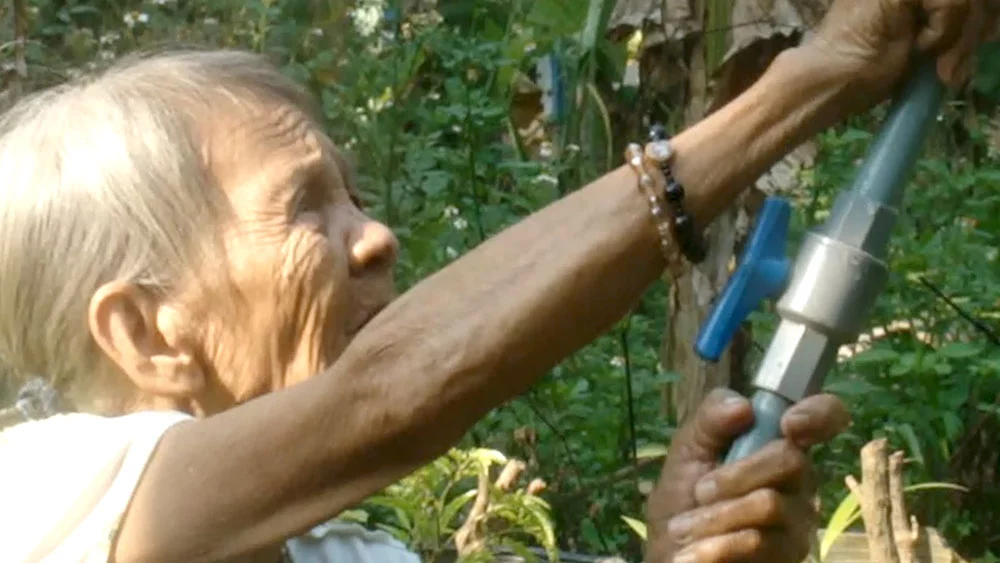Idle Worship: ‘Grandma’s Broken Leg’ by Huynh Công Nhớ
By Cassandra Sim

The concept of faith healing has been the subject of many true crime and supernatural films, but Huynh Công Nhớ’s experimental documentary cares less about the spectacle of the church, and instead spotlights the average devotee. The film’s titular character, Grandma, is entranced by the teachings of an online priest, whose sermons she watches on a laptop at home. For a generation who is unfamiliar with technology, the internet, and how to be critically skeptical about what they read and watch online, virtual environments can be a dangerous place.
Huynh manages to be a fly on the wall, invisible despite being in such close quarters with his subjects. Even in a scene where the young grandson is stark naked, no one seems to pay the camera any mind. The intimacy of his shots lends this film a haunting, visceral quality, like watching a found footage horror film unfold. A documentarian silently observing those around him swept up in a sinister cult-like fervour, Huynh seems to imply that he’s in a horror story of his own. He’s alone in the dark watching out for monsters, the only one awake while those around him are in a deep sleep.
Rebelling against the priest’s charismatic, sing-song style of storytelling, Huynh actively avoids preaching to his audience. Daringly embracing the lo-fi, handheld camcorder aesthetic of vintage home movies, and overlooking traditional documentary interviews and expert opinions, he merely presents the evidence—a collage of photographs and video footage that reads like a casual social media post, and leaves us to make our own meaning of the fragmented and disorienting scenes. The only times we get clear and stable footage are snippets of the priest’s dramatic sermons, aligning the audience directly with the psychology of his followers—their own lives are volatile, uncertain, and insular, while the church offers them a larger perspective, a clear bright light to look towards. This viewing experience is reminiscent of late nights spent falling down an internet rabbit hole, jumping from window to window, tab to tab, on a browser as we piece various sources of information together on our own little devices. For digital natives, the film reiterates a tried and true message—do your research, and don’t believe everything you’re told.
There is a refreshing sense of humour and wit to the film, delivering some memorable one-two punches; a churchgoer sharing how his illness was miraculously healed, which then immediately cuts to a photograph of his casket. Even with the modest source material, Huynh manages to weave in an acute sense of comedic timing and dramatic irony. The purity of its storytelling reminds us we don’t need expensive professional equipment and a large crew to tell a compelling story.
As filming technologies become more accessible to those of us without multi-billion Marvel budgets, the oft-glamorised institution of cinema seems to be giving way to more democratic forms of storytelling—films that resemble the kind of stories we tell each other every day, through video calls, or a Snapchat, or a WhatsApp chain message—and Grandma’s Broken Leg is a haunting testament to the true power of those stories.